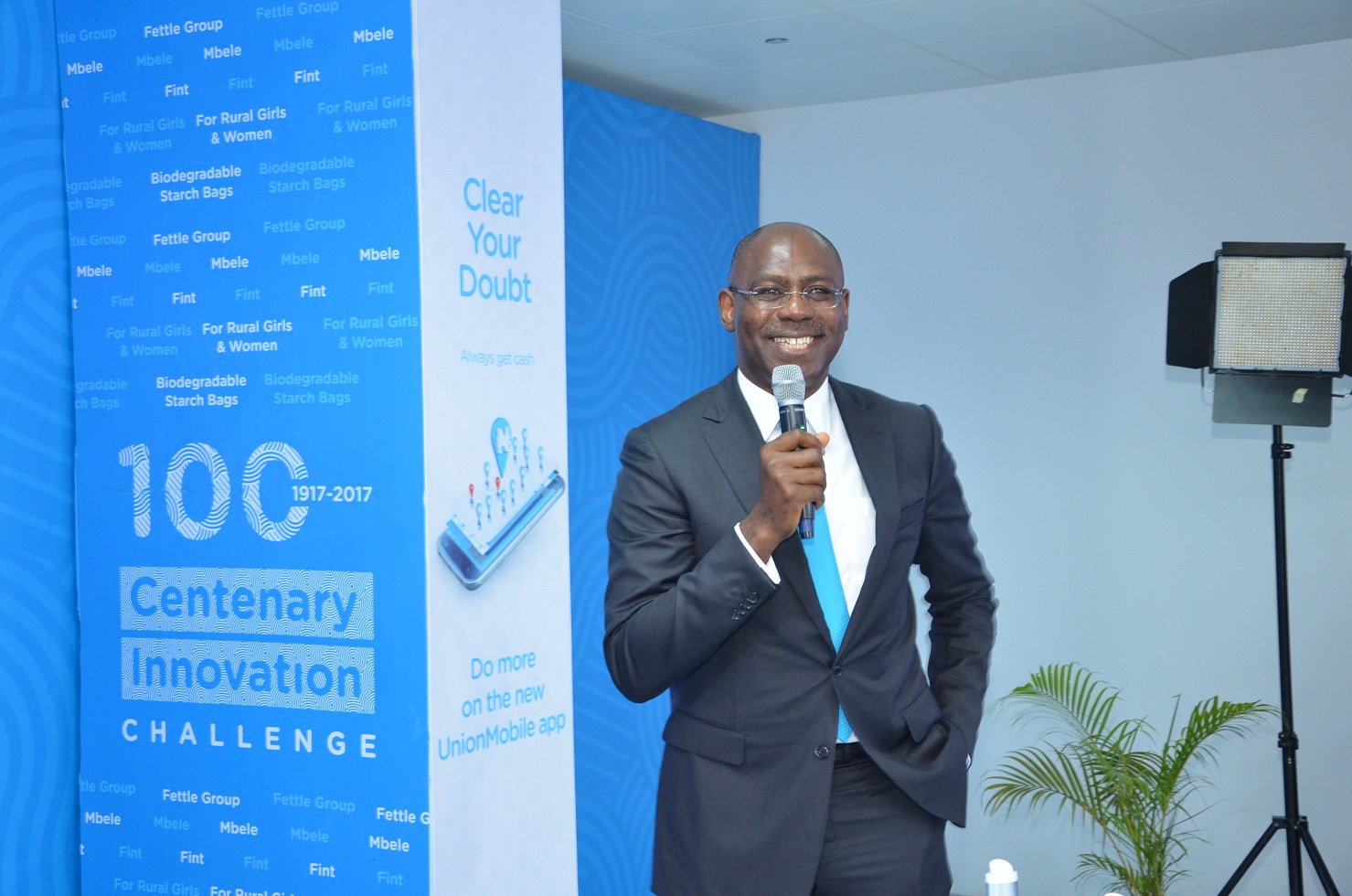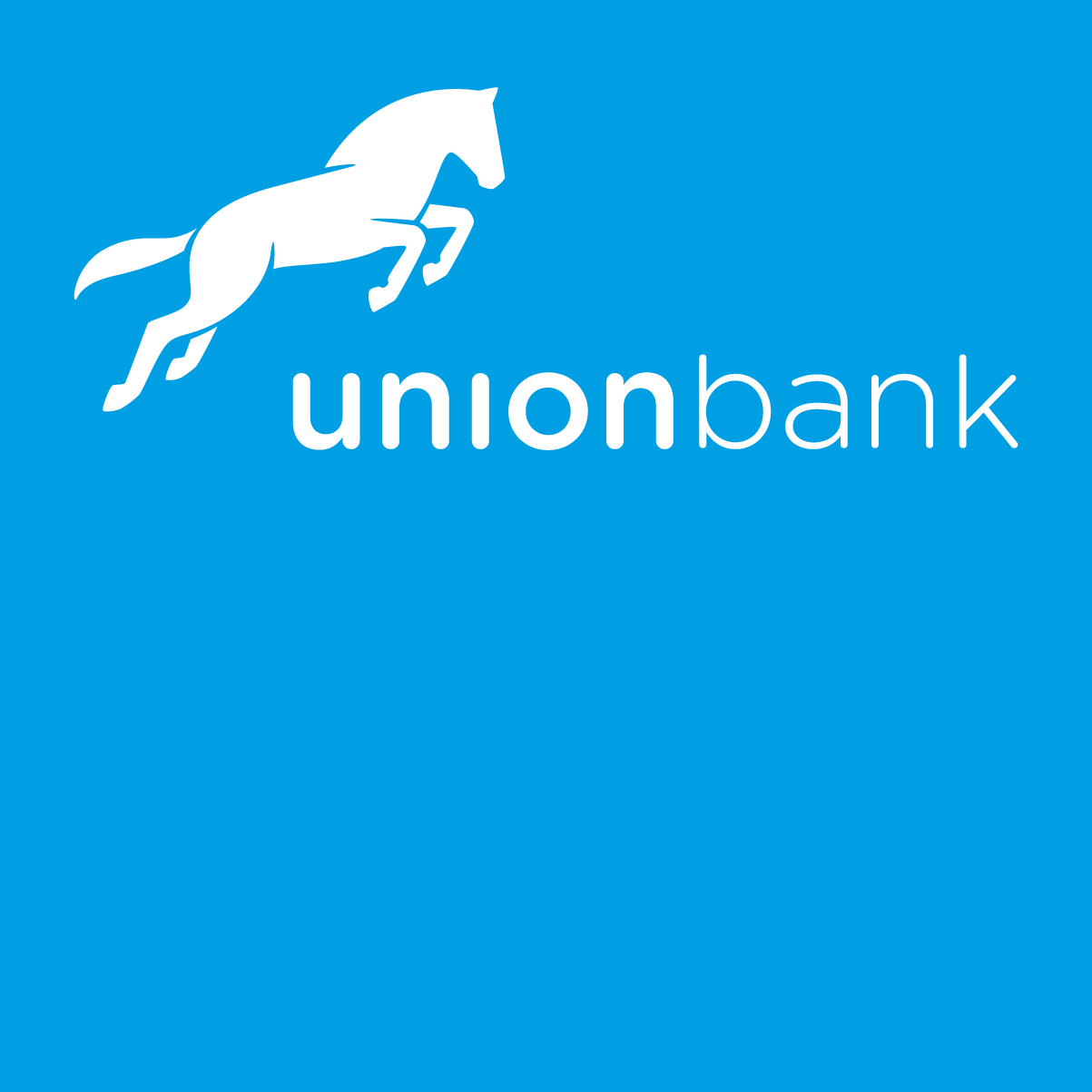Economy
Union Bank Grows PAT by 17% to N5.3b in Q1 2018

By Dipo Olowookere
One of the old generation financial institutions in the country, Union Bank of Nigeria Plc, has recorded a 17 percent growth in its profit after tax in the first quarter of 2018.
In its audited financial statements for the quarter ended March 31, 2018 announced on Thursday, the lender said its PAT appreciated to N5.3 billion from N4.5 billion in the corresponding period of last year, just as the profit before tax closed at N5.4 billion as at March 31, 2018 in contrast to N4.7 billion in Q1 2017.
Also, the gross earnings went up by 15 percent to N39.5 billion from N34.3 billion in Q1 2017, driven by improvement in net interest margins from 7.1 percent to 8.7 percent and 18 percent increase in non-interest income due to enhanced trading income and increased volumes on alternate banking channels.
Furthermore, interest income increased by 14 percent to N31.7 billion from N27.7 billion in Q1 2017 buoyed by improved yields on loans and government securities.
In addition, the firm’s net interest income before impairment rose by 22 percent to N17.8 billion from N14.6 billion in Q1 2017, driven by 14 percent increase in interest income and a lower 6 percent increase in interest expense.
It was also revealed in the statements that the non-interest income went up by 18 percent to N7.8 billion from N6.6 billion in Q1 2017, driven by a combination of trading income and alternate channel revenues, while the net operating income increased by 11 percent to N23.3 billion from N20.9 billion in Q1 2017.
Furthermore, the operating expenses jumped by 10 percent to N17.9 billion from N16.3 billion in Q1 2017, largely due to regulatory levies from the NDIC and AMCON.
However, the gross loans went down by 12 percent to N495.5 billion from N560.7 billion as at December 2017 as a result of collection efforts and the write-off of some non-performing loans.
During the period under review, the customer deposits of Union Bank went down by 5 percent to N759.1 billion from N802.4 billion in December 2017 as the lender optimised the deposit book towards lower-cost deposits.
It was observed that there was a 68 percent increase in new-to-bank accounts when compared with Q1 2017, highlighting customer acceptance of new products and increasing brand penetration.
There was also a 90 percent increase in volume of funds transfer transactions on Union Bank’s alternate channels, highlighting efficiencies gained from technology investments, which are driving increased customer adoption.
Commenting on the results, the chief executive of Union Bank, Mr Emeka Emuwa, stated that, “In 2018, we renewed our focus on driving efficiency and productivity across the entire organization.
“The objective is to ensure we fully leverage our resources including human, technology and new capital in order to maximize our bottom line.
“While we are just in the early stages of this drive, we are already starting to see positive results. In the first quarter, our Profit Before Tax grew by 16 percent compared to the same quarter in 2017. Gross earnings, bolstered by improved asset yields, strong treasury trading and revenue from our alternate channels, which is steadily seeing increasing customer adoption, are also up by 15 percent to N39.5 billion against N34.3 billion Q1 2017.
“Our Group Non-Performing Loan Ratio is down to 14.9 percent from 19.8 percent at the end of 2017.
“We continue to maintain aggressive focus on our impaired loans and we expect to resolve some large exposures in the course of the year, which will further drive down the ratio. We are pushing strongly on debt recovery efforts across board including initiating or continuing legal action where necessary.
“For the first half of the year, we will continue to hone initiatives around our productivity drive, focusing our people on targeted opportunities across regions and optimising our technology and digital platforms to deliver operational efficiency and improved customer service.
Also speaking on the Q1 2018 numbers, Chief Financial Officer of the bank, Oyinkan Adewale said, “The first quarter numbers reflect the adoption of International Financial Reporting Standards (IFRS) 9, which came into effect at the start of 2018. We are pleased that the Bank’s regulatory risk reserve was adequate to absorb the impact of the new accounting rules.
“Our Capital Adequacy Ratio (CAR) remains robust at 17.9 percent in spite of the impact of IFRS 9 on impairments. Liquidity ratio is at 39.4 percent, well above the minimum requirement, while Net Interest Margin improved to 8.73 percent from 7.14 percent in Q1 2017.
“Profit After Tax (PAT) rose 17 percent to N5.3 billion compared to N4.5 billion recorded in Q1 2017. Notwithstanding a 19 percent and 27 percent increase in our AMCON levy and NDIC premium respectively, our operating expenses increased by only 10 percent given the continued focus on optimising operating costs.
“We continue to proactively in managing the risks in our business as we pursue targeted opportunities identified for growth.”
Economy
Grey to Cut Cross-Border Payment Costs with New USD Offering

By Adedapo Adesanya
A cross-border payments solutions company, Grey has expanded its business banking platform to include US Dollar corporate accounts, bulk international payments, and USDC stablecoin support, all integrated into a single system.
The company is positioning itself as a low-cost, faster alternative to traditional international banking, particularly for businesses in emerging markets as it enables companies to open US Dollar accounts, receive global payments, and send payouts to 170+ countries, including bulk transfers, within minutes.
Grey aims to solve common cross-border payment challenges, particularly the high transfer costs that often range between 6 and 7 per cent of transaction value, prolonged settlement cycles that can stretch across several days, and the limited access many businesses face when trying to open and operate foreign currency accounts. In addition, companies frequently contend with hidden intermediary fees and poor foreign exchange transparency, both of which undermine cost predictability and effective cash flow management.
By integrating USD business accounts and USDC stablecoin functionality into its platform, Grey enhances its value proposition around faster settlement, clearer pricing structures, improved cost efficiency, and broader global accessibility. The expanded capabilities enable businesses to manage international transactions with greater speed, transparency, and operational control.
“Businesses may operate without borders today, but access to reliable global banking remains uneven, particularly for companies in high-growth markets,” said Mr Idorenyin Obong, Co-founder and Chief Executive Officer of Grey. “We’re closing that gap and enabling businesses to move money faster, with greater transparency and control, wherever their clients or partners are based.”
“When payments are delayed, or costs are unpredictable, growth stalls,” added Mr Joseph Femi Aghedo, Chief Operating Officer and Co-founder of Grey. “Grey eliminates those friction points, giving businesses a faster, simpler way to manage payroll, supplier payments, and partner payouts across borders. Adding USD and stablecoin capabilities makes these benefits accessible to even more customers.”
Established in Africa in 2020, Grey has a presence in key markets, including the United States, the United Kingdom, and Europe, and has recently expanded its services and operations into Latin America and Southeast Asia.
Since its inception, the company has consistently enhanced its services to empower digital nomads worldwide, regardless of location. Grey’s offerings include multi-currency accounts, low-cost international money transfers, a virtual USD card, expense management tools, and robust security measures.
Economy
Quidax, Lisk to Unlock Stablecoins, On-chain Financial Opportunities

By Aduragbemi Omiyale
A partnership designed to expand access to stablecoins and on-chain financial opportunities for everyday users and businesses has been entered into between Quidax and Lisk.
The partnership provides a critical gateway for the developer community, as builders on the Lisk network can now leverage Quidax’s robust digital asset infrastructure to access stablecoins and local currencies at competitive rates.
This institutional-grade infrastructure is designed to power “future-forward” financial products, ranging from neobanks and cross-border payment platforms to regional exchanges and global fintech solutions. It will also allow Quidax customers to trade and move value seamlessly using USDT, USDC, LSK, and Ether (ETH) on the Lisk network.
The collaboration will also accelerate the adoption of Web3 solutions that solve real-world financial challenges for millions of customers across Africa by combining Quidax’s deep local liquidity and compliant framework with Lisk’s scalable L2 technology.
In 2024, Quidax became the first crypto exchange to receive a provisional operating license from Nigeria’s Securities and Exchange Commission (SEC).
“The partnership with Lisk enables us to extend our platform to serve more people and cater to the increasing demand from products and services that want to integrate our stablecoin and digital assets product to build products across Africa,” the Chief Infrastructure Officer at Quidax, Mr Morris Ebieroma, said.
Also commenting, the Ecosystem Lead for Africa at Lisk, Ms Chidubem Emelumadu, said, “Africa represents one of the most critical frontiers for blockchain innovation, where the demand for reliable and inclusive financial tools is urgent.
“Our partnership with Quidax expands access to stablecoins and on-chain financial opportunities for everyday users and businesses. At the same time, it gives founders building on Lisk the critical infrastructure they need to create solutions that can scale meaningfully across the continent,” she added.
Economy
Customs Urges Freight Forwarders to Adopt Automated Licence, Permit System

By Adedapo Adesanya
The Nigeria Customs Service (NCS) has urged freight forwarders to adopt its automated Licence and Permits Processing system to reduce the cost of doing business.
This advice was given by the Assistant Comptroller-General of Customs, Mr Muhammed Babadede, during a stakeholders’ engagement on automation held in Lagos on Monday.
He noted that the reform responds to longstanding demands for faster, more transparent and simpler procedures for industry stakeholders, disclosing that Comptroller-General of Customs, Mr Bashir Adeniyi, has approved the full automation of the service’s licences and permits processes.
“For years, stakeholders dealt with paperwork, long queues and uncertainty from manual processing. Those days are coming to an end.
“This sensitisation is across all zones. The goal is to ensure stakeholders understand the automated system before implementation,” Mr Babadede said.
He said automation would enable applications and renewals from offices or mobile phones, eliminating visits to customs formations, assuring stakeholders of a fair and consistent process, and reducing errors associated with manual documentation.
He said automation would improve record-keeping, supervision and service delivery without increasing pressure on officers.
The Deputy Comptroller-General, Tariff and Trade, CK Naigwan, also represented by Mr Babadede, reiterated management’s commitment to seamless implementation.
Meanwhile, the Comptroller of Customs for Licence and Permit Unit, Mrs Ngozika Anozie, praised the Comptroller-General for driving innovation within the Service, saying the automation aligns Customs procedures with global best practice and strengthens institutional efficiency.
According to her, the reform reflects the three-point agenda of the Chairman of the World Customs Organisation, Mr Adeniyi, centred on consolidation, collaboration and innovation.
She said the system would enhance the ease of doing business in the maritime sector and boost national revenue generation.
“Automation will cut business costs and reduce travel risks for stakeholders
“They will no longer travel repeatedly to Abuja, paying for transport, hotels and feeding to process licences and permits,” she said, adding that the platform would automatically reject fake documents and accept genuine submissions, curbing fraudulent practices.
“The CGC is determined to sanitise the system, and we are committed to achieving that objective,” Mrs Anozie said.
On his part, the Assistant Superintendent of Customs, Mr Ibrahim Usman, said the Licence and Permit Unit operates under the Tariff and Trade Department.
He explained that the unit ensures proper issuance of licences and permits and compliance with import regulations.
Mr Usman said all licences and permits expire on December 31 of their issuance year.
He added that the portal would become fully operational after nationwide sensitisation, with stakeholders duly informed.
Customs Area Controller, Tincan Island Command, Mr Frank Onyeka, thanked stakeholders for their continued support.
He urged them to take the exercise seriously to achieve seamless processing across Customs operations.
Stakeholders raised concerns about online payment integration and potential technical disruptions.
Officials addressed the questions and pledged continued engagement to ensure smooth implementation nationwide.
-

 Feature/OPED6 years ago
Feature/OPED6 years agoDavos was Different this year
-
Travel/Tourism10 years ago
Lagos Seals Western Lodge Hotel In Ikorodu
-

 Showbiz3 years ago
Showbiz3 years agoEstranged Lover Releases Videos of Empress Njamah Bathing
-

 Banking8 years ago
Banking8 years agoSort Codes of GTBank Branches in Nigeria
-

 Economy3 years ago
Economy3 years agoSubsidy Removal: CNG at N130 Per Litre Cheaper Than Petrol—IPMAN
-

 Banking3 years ago
Banking3 years agoSort Codes of UBA Branches in Nigeria
-

 Banking3 years ago
Banking3 years agoFirst Bank Announces Planned Downtime
-

 Sports3 years ago
Sports3 years agoHighest Paid Nigerian Footballer – How Much Do Nigerian Footballers Earn



















